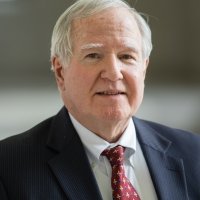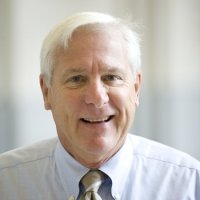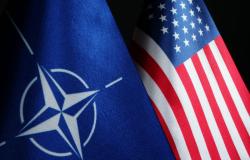Perspectives on the U.S.-Korea Free Trade Agreement
Jose W. Fernandez, Assistant Secretary of State for Economic, Energy, and Business Affairs; Moderated by: Kent Hughes, Director, Program on America and the Global Economy, Woodrow Wilson Center; Discussant: William Krist, Senior Policy Scholar, Woodrow Wilson Center
Overview
On April 19th the Program on America and the Global Economy (PAGE) hosted speakers from the U.S. Department of State to discuss the pending U.S. – Korean (KORUS) free trade agreement. Korea and the United States penned the initial agreement in 2007 and the Obama administration finished negotiating an amended FTA with the Korean government in early December, 2010. Kent Hughes, PAGE director, moderated the event.
Assistant Secretary of State for Economic, Energy and Business Affairs Jose Fernandez opened the discussion by emphasizing the “human bond” embedded in the agreement between Korea and the United States. He cited the experience of Dartmouth College’s president Jim Yong Kim—the first Asian-American to lead an Ivy League institution—as an example of the fundamental cultural connection of between the two nations. The relationship is strategic as well as natural, Fernandez argued, noting that Korea is “a vital part of defense and development in the region.”
To help “bring the promise” of Korean – U.S. free trade, the Obama administration intends to “submit KORUS to Congress without delay,” Fernandez said. The agreement is “critical to the National Export Initiative” to double exports over the next five years. The Assistant Secretary stressed that the number one focus would be job creation. Fernandez suggested that the “tariff cuts alone could increase exports $10-$11 billion annually and create 70,000 jobs” in the affected sectors. He expects the agreement to boost agricultural exports by $1.8 billion per year and for the large Korean service market to allow for greater competition from U.S. companies.
With bilateral trade at $88 billion the trade relationship between the two countries bolsters U.S.-Korean ties and strengthens “one of the world’s most vibrant economic relationships.” Korea is the United States’ seventh largest trading partner, and the U.S. is third on the list of Korea’s commercial partnerships. Fernandez acknowledged however that the 2007 agreement had its shortcomings, notably in the auto industry. After talking with congress and industry leaders, Fernandez said the new 2010 agreement “ensures a level playing field for U.S. car manufacturers.” Among the new provisions: the elimination of tariffs on electric cars in 5 years and an overall reduction in Korean auto tariffs by fifty percent while U.S. tariffs stay stable for five years.
Fernandez urged Congress to act fast to approve the agreement, as China, Japan, and the European Union all have pending free trade agreements with Korea. The State Department’s urgency extends to the Colombian and Panamanian free trade agreements as well. Fernandez noted that Panama has remedied all labor law and tax code issues that were holding it back, and that Colombia is expected to have met goals set for its necessary reforms by late April.
Bill Krist, senior policy scholar at the Wilson Center, joined Fernandez in recommending the passage of the Korean Free Trade Agreement. The Colombian, Panamanian, and Korean trade agreements have “sat on the shelf for four to five years,” and as Krist noticed “that is not a way to treat friends.” He agreed with Fernandez that the agreements are important as matters of foreign policy and should be passed once the necessary standards are met.
Krist then discussed U.S. trade policy more generally. He argued that the reciprocal treatment promised by Most Favored Nation (MFN) status under GATT and the WTO no longer live up to its promise. He agreed that “Free Trade Agreements” have become instead “Preferential Trade Agreements,” and have made it more difficult for poorer countries to benefit from international trade relationships. Krist further suggested that the United States should allow piece by piece trade negotiations with other countries, instead of insisting on comprehensive deals.
Krist also raised questions about the imbalance in power relations that characterizes many of the free trade agreements between the United States and much smaller economies. In particular, he criticized the imposition of provisions for intellectual property protection that went beyond current WTO standards and did not usually serve the interests of developing economies. With reference to the Doha Round of multilateral trade negotiations, Krist emphasized the value of the provisions promoting trade facilitation, trade capacity building, and sharply lowered tariffs on environmental goods.
William Craft, Deputy Assistant Secretary for Trade Policy and Programs at the State Department, and Fernandez also stressed that Intellectual Property is “one of the county’s chief exports” and ought to have the fullest possible protection.
Fernandez was asked why the U.S. needs an economic agreement to cement its already strong geopolitical ties with Korea. The same questioner pointed to the recent U.S International Trade Commission (USITC)’s data indicating that the overall U.S. trade deficit and net loss of jobs will increase as a result of the KORUS FTA. Fernandez responded by emphasizing that “security is not about guns, security is not about bombs, security is about people…the more commerce you have, the more trade you have, the more connections between people, the greater your security.” He also argued that the USITC data he saw claimed $3.3 billion increase in the U.S. trade balance at no cost to U.S. jobs.
On the question of whether currency controls are a larger impediment to trade with Korea than tariffs, Krist agreed that currency manipulation is a key issue in foreign trade, and that the United States needs to deal with it fundamentally instead of on an ad hoc basis. Currency concerns should not stall the agreement, however, and Krist further argued that maintaining “credibility” had become a serious issue for the long-idle FTA proposal.
Overall the panelists supported ratification of the renegotiated Korean FTA with the United States. Fernandez and Craft also expressed optimism that the outstanding issues, namely beef exports, would be resolved. “The numbers are there,” said Fernandez referring to the prospects for job and export increases, “we just need to keep our eye on the ball.”
By: John Coit
Kent Hughes, PAGE Director
Thank you for your interest in this event. Please send any feedback or questions to our Events staff.












